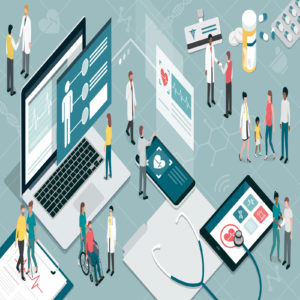The technology in your healthcare organisation can affect how you interact with your patients, specialists and other service providers. While many larger clinics have in-house support or outsource, in solo and small general practice clinics it is often the primary GP who is responsible for computer security. Such GPs are also tasked with determining if their information and communications systems are as efficient as they could be.

As patient demographics change due to population movement it is important that your information and communications technology can expand with your organisation. Technology works best when it is integrated and should also be easy to manage for all staff. Doctors and nurses want to spend time with patients, not figuring out software. Office and administration staff also want to get on with the job of processing patient files, not reading user guides and manuals. Overall technology should support your GP clinic and help streamline processes.
Consumers are increasingly demanding more technology in healthcare but an interface that requires patient input should be user-friendly. For example, have you considered if an online appointment setting system would suit your patient demographic? Would a self-check-in system via a touch screen mean that your administrative staff spend less time on reception duties or would it create more issues if your patients are elderly and not comfortable with technology or are from culturally and linguistically diverse backgrounds?
Does your clinic’s technology comply with data security regulations?
The privacy and security of patient health information held by a medical practice is a legal obligation. Do you have systems in place to prevent unauthorised access to data? Outdated software can be more susceptible to data breaches and cyber-attacks putting your data security at risk. Consideration also needs to be given to security for mobile devices such as phones, tablets and laptops that may be used by staff especially if such devices are taken off-site for any purpose and there is the potential for mobile devices to be lost or stolen. Storage and back-up systems are vital in the event of a crash to prevent data loss. Does your clinic have procedures in place in the event of computer downtime?
The Royal Australian College of General Practitioners (RACGP) includes guidance around information security and management of health systems in its Standards for General Practice. The aim of the Standards in relation to managing computer and information security is help GPs better manage their IT infrastructure and minimise risk to patient data.
The RACGP also provide a guide for hardware and software requirement in general practice which encompasses recommendations and provides a checklist GPs can use to form practice policies.
